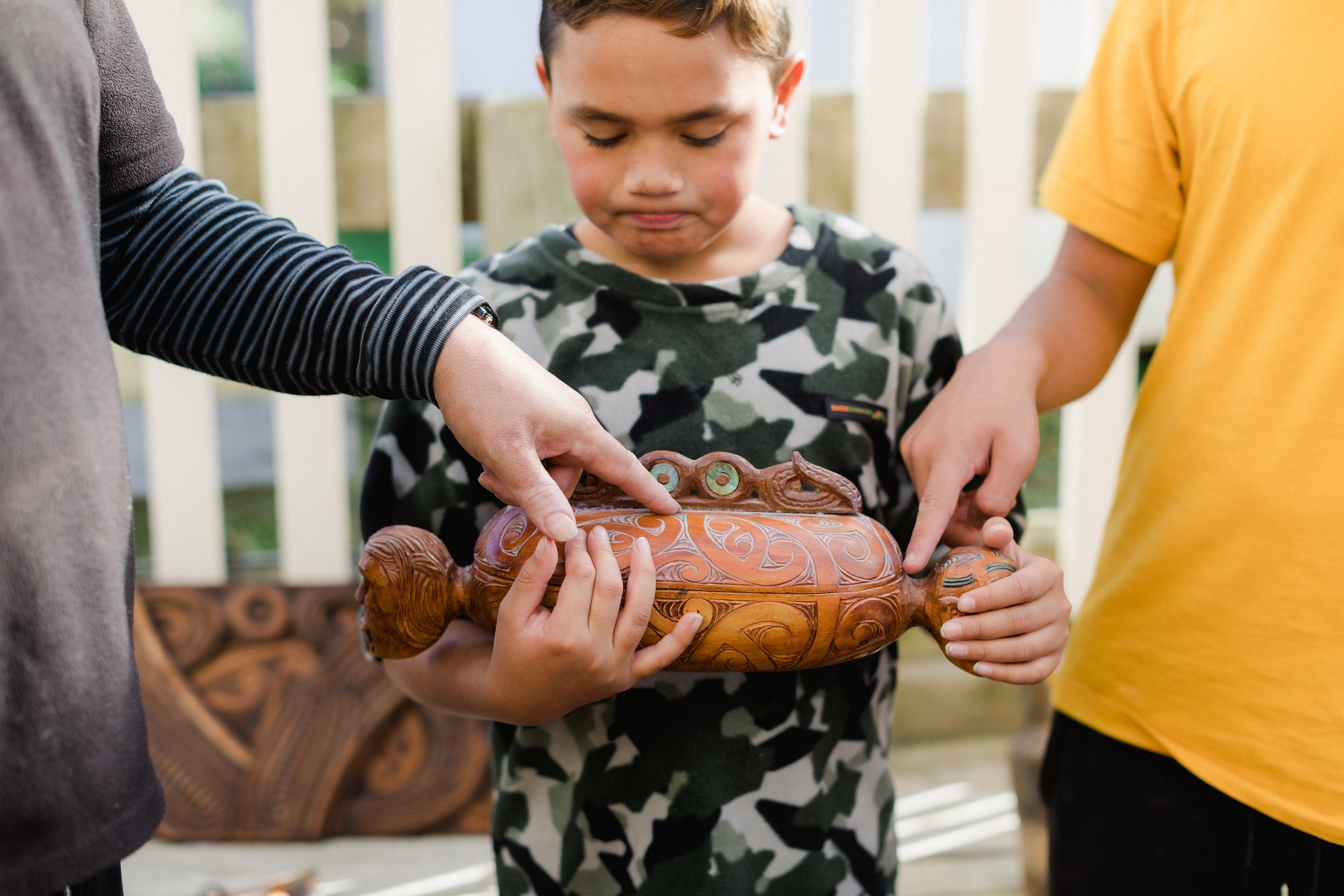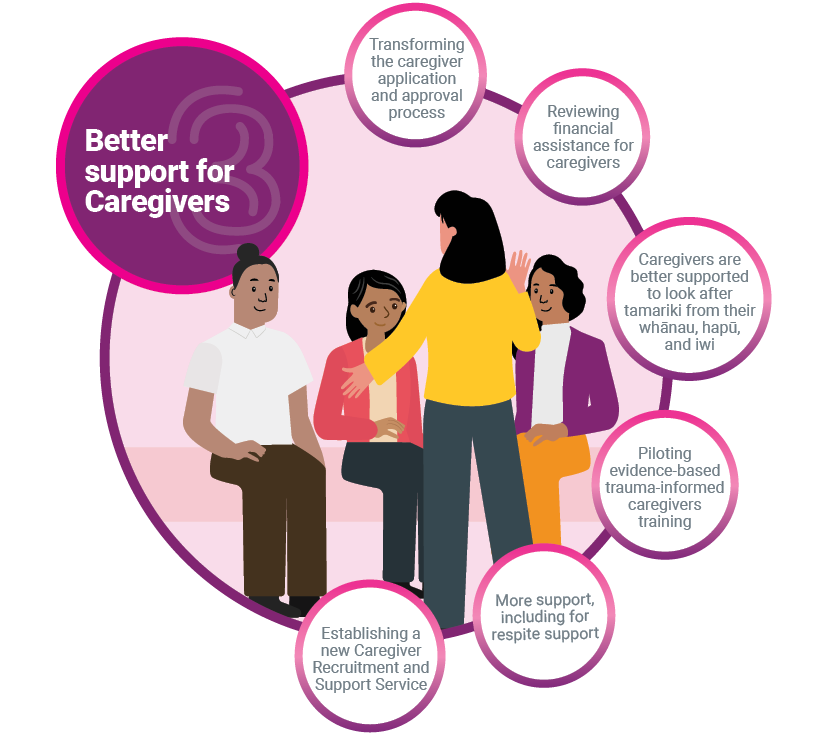Family and whānau care
We do everything we can to place tamariki with caregivers from their wider whānau.
Care decisions are complex
When a concern is raised about a tamaiti, we are required by law to keep them safe and support their whānau to care for them safely.
We only consider placing a tamaiti in care if there are a number of serious risk factors, and there are no other options to keep them safe. We don't take this lightly, and most decisions are made by a Family Court judge who has a full picture of the situation.
Bringing a tamaiti into our care means we seek Family Court orders to make decisions for that tamaiti and where they live. It means we’re responsible for their day to day care, ensuring their needs are met and their caregivers are well supported.
Whānau-first approach
When a tamaiti comes into our care, we do everything we can to place them with caregivers from their wider whānau who can provide a safe, stable, loving home for as long as needed.
Sometimes we need non-kin caregivers for a tamaiti or rangatahi until they can safely return home or go to stay with a caregiver from their wider whānau.

Caring for tamariki Māori
We’re working in partnership with iwi and kāupapa Māori providers (providers who use Māori customary practice, incorporating the knowledge, skills, attitudes and values of Māori society) to connect tamariki Māori in care to caregivers from their whānau, hapū or iwi.
Through co-design we support our Whānau Care partners to determine their own ways of caring for their tamariki and rangatahi Māori. The end goal is always the same – to connect tamariki and rangatahi Māori in care to their whakapapa through well-supported whānau caregivers.
Real-life example
One of our partnerships is with Waitomo Papakāinga, a kaupapa Māori organisation that works in Kaitaia and across Te Hiku o Te Ika (the Far North). The goal of this partnership is to ensure tamariki and rangatahi Māori who need care are living safely with well-supported kaitiaki whānau (caregivers who have whakapapa connections to them through whānau, hapū or the 5 iwi of Te Hiku).
Working in partnership with our Kaitaia site, Waitomo Papakāinga accepts referrals of mokopuna who whakapapa to the 5 iwi of Te Hiku. With their extensive knowledge of whānau and hapū across the rohe, Waitomo Papakāinga connects mokopuna to kaitiaki whānau and works to provide comprehensive, kaupapa Māori support.
Better support for caregivers

Quality care
When a tamaiti comes into our care, we go to great lengths to ensure they are well supported and have their needs met. The quality of care continues to lift through the introduction of the National Care Standards in Hurae 2019.
The Care Standards set out good social work practice, what a tamaiti can expect and is entitled to while they are in care, and the support caregivers can expect to receive when they are caring for a tamaiti.
They take into account the needs of te tamaiti and provide the opportunity for a tamaiti or rangatahi to express their views. We are independently monitored on our compliance with the Care Standards.
Part of delivering the Care Standards includes creating All About Me Plans for every tamaiti in care, which set out how their individual needs will be met. A corresponding Caregiver Support Plan is put in place for their caregiver to help them meet these needs.
We are also hiring more caregiver social workers so that caregivers get the support they need.
We’ve lowered social worker caseloads to make sure we’re able to support these tamariki, their whānau and caregivers properly. And we're investing around $230 million over 4 years, from Budget 2020, to continue improving services for tamariki in care.
For more detail about tamariki in care, view our Quarterly Report, below.
Published: October 17, 2023

